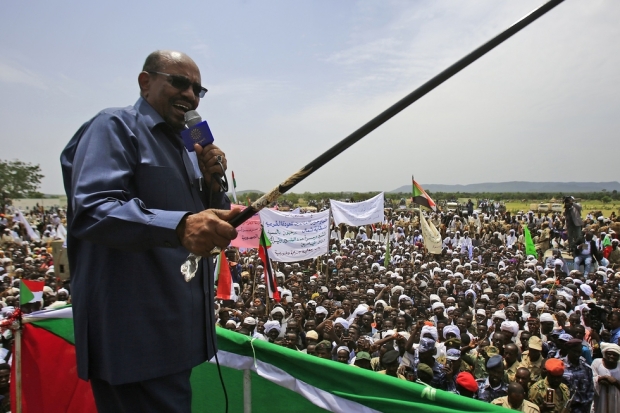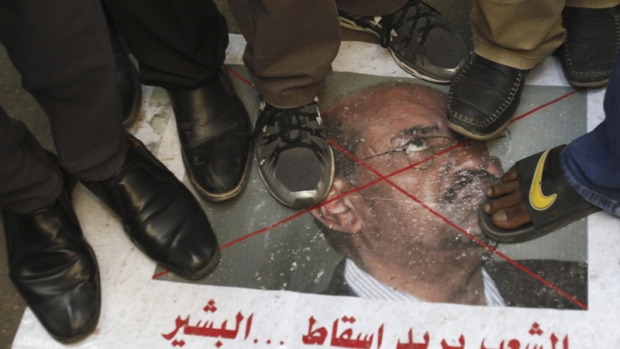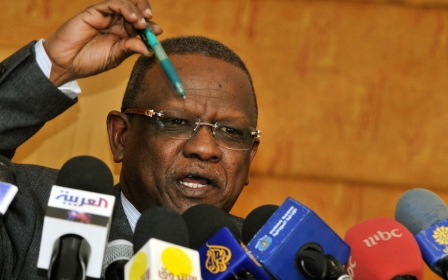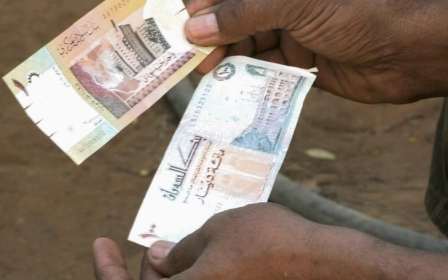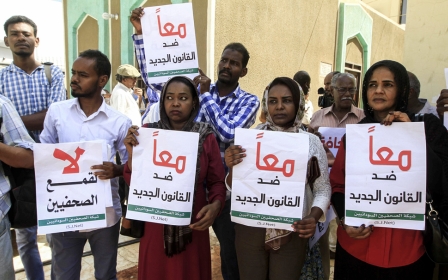ANALYSIS: Bashir turns to 'old guard' enforcer to quell rising threats in Sudan
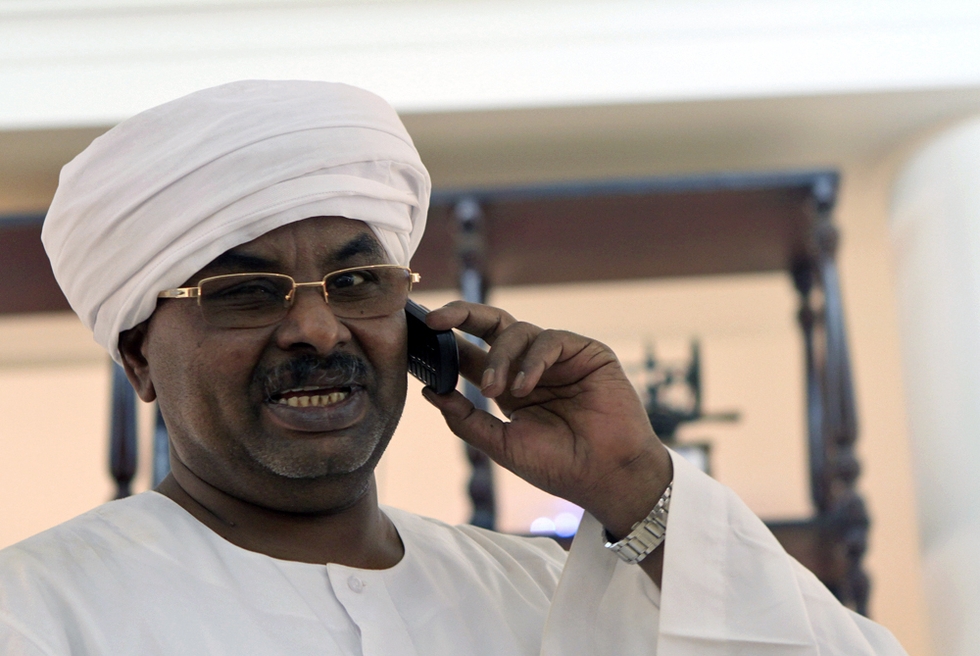
KHARTOUM - Sudan's president has raised questions by his decision to reinstate as head of national security a man the government accused of plotting a coup only five years ago, a move opponents and analysts suggest will be used to hammer dissent and straighten messy US relations.
Salah Abdullah, known by his nickname "Gosh", was brought back as national security and intelligence services chief by Omar al-Bashir on Sunday in a presidential decree amid mounting domestic and internal pressures.
The passing of the 2018 budget, laced with austerity measures, sparked sporadic protests in early January over the rising costs of living. That led to the arrest of hundreds of political activists and opposition leaders, and a shakeup in the halls of power.
The reappointment shows the government... is willing to commit more violence against protesters
- Ali Saeed, Communist party
Gosh led the National Security and Intelligence Services from 2004 to 2009, and then served as presidential security adviser until his sacking in 2011 and arrest soon after being accused of plotting to overthrow the government.
He was released about seven months later by presidential pardon.
His re-appointment has been described as "meaningless" by opposition leaders, and for only one purpose - repression of dissent by the ruling National Congress party.
Ali Saeed, a spokesman for the Communist party of Sudan, told Middle East Eye that Gosh would have no effect on the economic troubles - he was simply there to oversee the repression of protesters.
"The reappointment shows the government has no real economic solution, and that it is willing to commit more violence against protesters," he said.
Saeed suggested that Gosh's repression would extend into the ruling party, to remove Bashir's internal opponents and pave the way for his re-nomination as president for elections in 2020.
Last month, the party's Shura council postponed its decision to re-nominate Bashir - a de facto rejection - a proposal made by leading NCP members, despite constitutional restrictions on him serving another term.
"Internal disputes have been ignited after the conference last month rejected Bashir's push for re-election, and Bashir bring back Gosh to control the situation," said Saeed.
Cometh the hour
Ahmed Karamano, a prominent member of the NCP, rejected the claims as fanciful. He said the re-appointment of Gosh would improve security, and aid the political and economic situation.
The economic downturn was a "combination of internal and external conspiracy", he said, without elaborating.
"The appointment of Gosh is very successful and timely, which comes in line with the current sensitive stage through which the country is passing," he said.
"There are no internal disputes in the ruling party, these are the dreams of the opposition parties and the reappointment of Gosh has no link with the nomination of Bashir."
There are no internal disputes in the ruling party, these are the dreams of the opposition parties
- Ahmed Karamano, NCP member
A former assistant of Gosh and retired major-general, Hassab Allah Omer, said Gosh was key to the stabilisation of the country.
"Gosh has strong contacts domestically and externally, and can do well to break the isolation on Sudan," he said.
Ahmed Hussein Adam, a former spokesman for the Sudanese opposition Justice and Equality Movement, however believed that Bashir had reached deadlock and had no solutions for the country’s problems.
"The collapsing economy and austerity budget is placing an intolerable burden on the Sudanese people," he said. "It is evident that Bashir's top priority is to hang on to power at all cost."
He added that Sudan could not survive until the next presidential election in 2020, and Bashir's government would resort to repression and use Sudan's participation in the Yemen war to ask the Saudis and Emiratis to save the economy.
Neither of those tactics offered a permanent solution to Sudan's problems, he said.
Gosh the enforcer
Analysts have pointed to Gosh's record as a "strongman" for his re-appointment. Reports suggest he was the senior intelligence officer responsible for al-Qaeda leader Osama bin Laden when he was in Sudan until 1996.
In 2000, he helped crush dissidents who had split from the Sudanese Islamic movement, which had backed the 1989 coup by Bashir.
He was the manager of al-Yarmok military factory until 2004, which in 2012 was bombed by Israeli jets over claims it had been producing Iranian weapons.
In 2009, the New York Times reported Gosh threatened with "amputation of the hands and the slitting of the throats of any person who dares bad-mouth Bashir or support" the decision by the International Criminal Court to issue an arrest warrant for his president.
Mohamed Badawi, the monitoring director of the African Centre for Justice and Peace Studies, said he believed Bashir was bringing back his "old guard" for protection in the face of worsening factional power struggles within government.
"The failure of Bashir to fight his internal competitors has pushed them to bring Salah Abdullah," he said.
Ahmed Hussein Adam, a research associate at SOAS, University of London, meanwhile wrote that there are known rifts between Bashir and the prime minister, General Bakri Hassan Saleh, "and it continues to widen".
He suggested Saleh has been rumoured to be the US and some Gulf countries' favoured replacement for Bashir.
"Ongoing power struggles within the government also encouraged parts of the regime's old guard to re-enter the political game from different directions," he wrote for Al Jazeera.
"The former vice president, Ali Osman Taha, is angling to help Bashir win the 2020 elections," he wrote.
"The founder of the National Intelligence and Security Service and Bashir's former senior assistant, Nafie Ali Nafie, is forming alliances with Saleh to prevent Bashir," he said.
Project Washington
The reappointment also comes amid deterioration in relations with the US, after Bashir last November asked his Russian counterpart, Vladimir Putin, for protection against what he described as "aggression" from Washington.
Donald Trump last year lifted long-standing sanctions against Sudan, saying it had made progress fighting terrorism and easing humanitarian distress. But the US president kept Sudan on a list of state sponsors of terrorism, which carries a ban on weapons sales and restrictions on US aid.
Salma Altijani, a Sudanese writer, said the push to rekindle ties with the US and its allies may be the main reason by for Gosh's reappointment.
Gosh has a lot to do in the 'war against the terrorism', in addition to his clear position regarding ties with US friends in the Middle East
- Salma Altijani, Sudanese writer
Gosh was known for building ties with the US, and was the first Sudanese spymaster to cooperate with the CIA on the so-called "war against terrorism", visiting the US in 2005 as reward for his record on arresting militants wanted by Washington.
Altijani said Gosh reopened dialogue with the US after the attacks on 11 September 2001 and was key to rebuilding bridges.
"Gosh will be tasked to manage the file of relations with the United States following the recent deterioration after the visit of Bashir to Moscow," she said.
"Gosh has a lot to do in the 'war against terrorism', in addition to his clear position regarding ties with US friends in the Middle East, including Saudi Arabia and Emirates."
New MEE newsletter: Jerusalem Dispatch
Sign up to get the latest insights and analysis on Israel-Palestine, alongside Turkey Unpacked and other MEE newsletters
Middle East Eye delivers independent and unrivalled coverage and analysis of the Middle East, North Africa and beyond. To learn more about republishing this content and the associated fees, please fill out this form. More about MEE can be found here.


